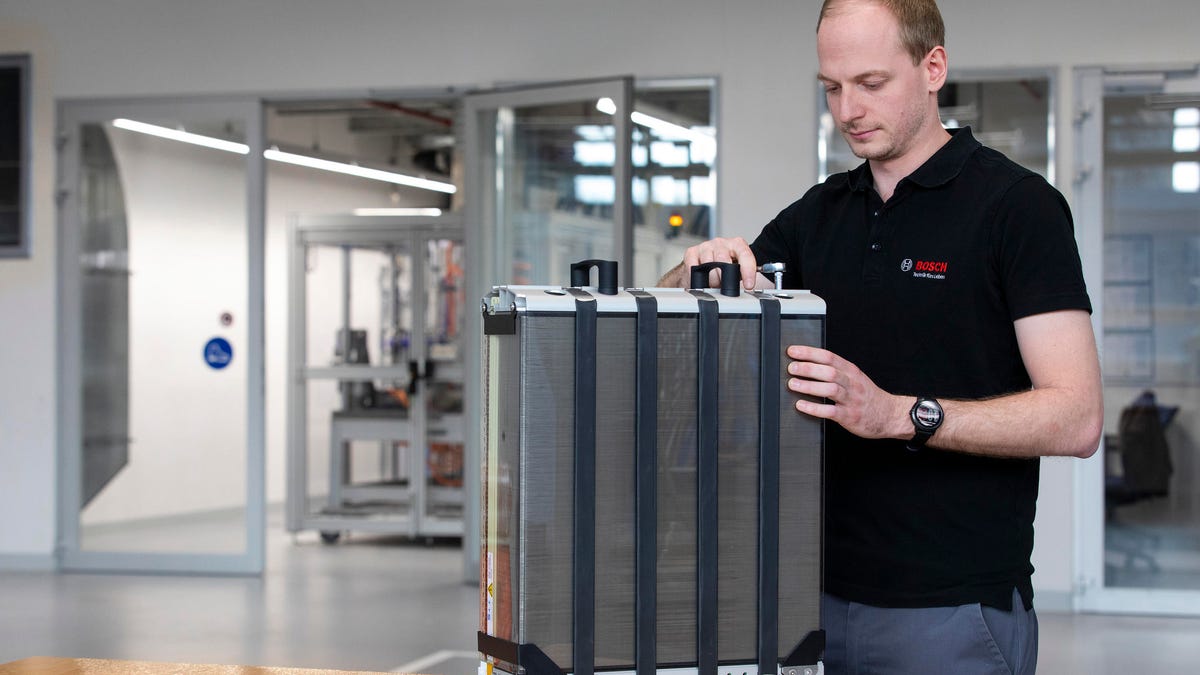Bosch partners with Sweden's Powercell to build fuel cells for electric cars, trucks
Expect the fuel cells to start making their way to automakers by 2022.
As much as everyone likes to think about battery-electric vehicles as the inevitable end-all, be-all of electrification, hydrogen fuel cell technology is still kickin', and a major supplier plans to throw some weight behind the idea that there are multiple means to similar ends.
Bosch announced on Monday that it will begin manufacturing hydrogen fuel cells for use in electric cars and trucks . To achieve this, it's teamed up with Sweden's Powercell, a company that specializes in the development and manufacture of hydrogen fuel cell stacks and systems. According to the agreement, Bosch and Powercell will jointly develop future fuel-cell tech, with Bosch also being in charge of the building and distribution of said fuel cells.
Of course, every path to widespread electric vehicles has its own potential complications, and it appears Bosch and Powercell are aware of them. First and foremost is cost, specifically the stack of cells itself, which Bosch says comprises about two-thirds of the total system cost. The second issue is the fuel -- compressed hydrogen gas is really only created for industrial purposes at the moment, which means it, too, is expensive. Bosch hopes that by wading into this industry, it can use its massive scale to help reduce costs.
Bosch has high hopes for hydrogen fuel cells. Even though they make up an infinitesimal proportion of electric vehicles -- especially in the US, where hydrogen filling infrastructure is in awfully short supply -- Bosch believes that up to 20 percent of global electric vehicles will use hydrogen fuel cells by 2030. Trucks will likely be an important part of this, and automakers like Toyota are currently working to reduce truck emissions with hydrogen fuel-cell powertrains.
Hydrogen fuel cells work to create electricity from compressed hydrogen gas. Hydrogen passes through the fuel cell's anode, while oxygen passes through the cathode. This reaction generates an electric current and a bit of heat, with the only byproduct being water. Currently, hydrogen vehicles are limited to sales on both coasts, the only places with the infrastructure required to keep these kinds of cars running.


